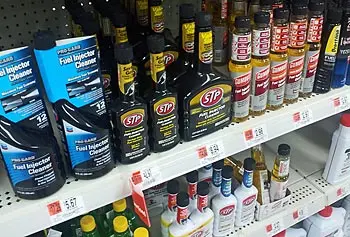Technology Eliminates the Use of Highly Toxic Gas

08/20/2013
By Edwin L. Aguirre
Chemistry Prof. (http://www.uml.edu/Sciences/chemistry/faculty/faust-rudolf.aspx) Rudolf Faust has developed a new, more environmentally friendly process for making highly reactive polyisobutylenes (HRPIBs), which are used in engine lubricants and fuel additives.
Each year, more than 750,000 metric tons of HRPIBs and conventional, low-molecular-weight polyisobutylenes are produced worldwide. They are used to manufacture dispersants for motor oils, helping prevent the formation of engine sludge as well as minimizing friction, corrosion and exhaust smoke. When used as gasoline and diesel additives, they keep the fuel-injection and exhaust system clean, which leads to better fuel efficiency.
Current methods for manufacturing HRPIBs involve the use of boron trifluoride, BF3, a highly toxic and corrosive gas. Low temperatures are needed to keep the chemical reaction under control and obtain the desired molecular weight for the compounds, so the energy consumed during production is quite large.
“In recent decades, several new methods for synthesizing HRPIBs were reported, but none of them gained industrial acceptance,” says Faust. “This is likely due to the high cost of production since low temperatures and expensive chemicals are required.”
Faust’s method is not only environmentally benign but also cost-effective.
“By using a novel catalyst system, we can make HRPIB without using boron trifluoride,” says Faust. “We already filed a patent application for this invention.”
Funding for Faust’s research is provided through a grant from Infineum USA, a global company based in the U.K. that formulates, manufactures and markets petroleum additives for lubricants and fuels used in the automotive, locomotive and maritime industries.
